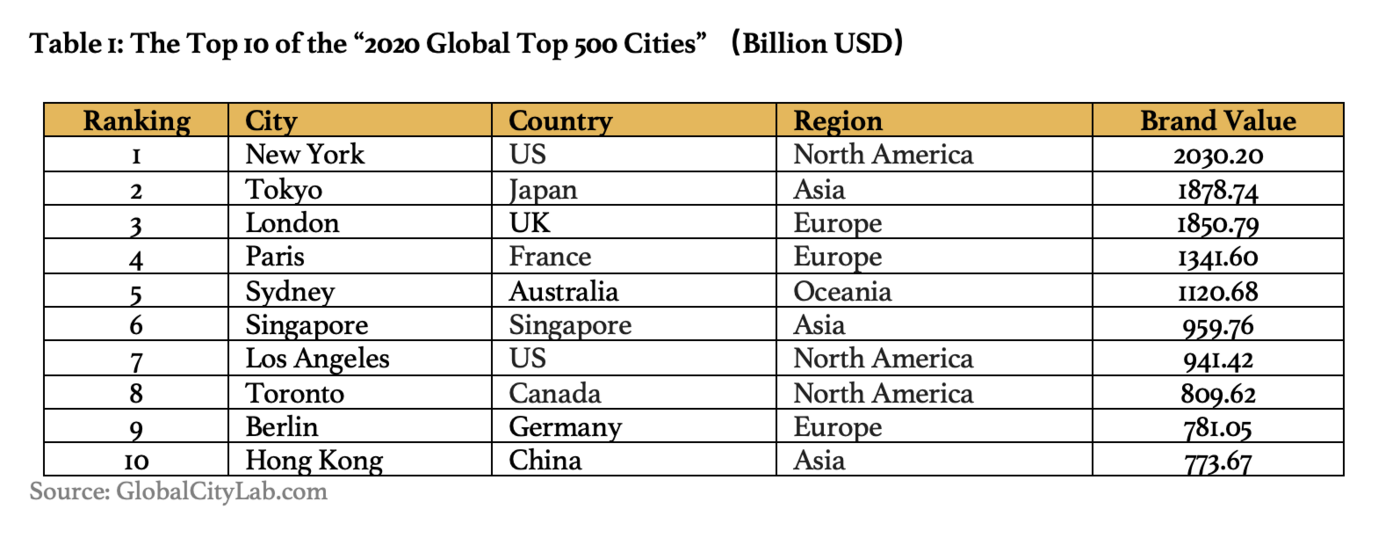
Toronto was just ranked one of the best-branded cities in the world
Apple. Nike. Toshiba. Pepsi. Amazon. Hyundai. Kraft. Toronto?
A city is no longer merely a place to call home or visit — it's a "brand," representative of its population's collective strengths, talent and economic potential.
So says the New York-based urban consulting agency Global City Lab, which bills itself as "the world's first professional institution engaged in the evaluation of city brand values."
"We analyze and measure the development levels and brand values of cities around the world from six perspectives: economy, culture, governance, environment, talent and reputation," writes the firm, which just released the 2020 edition of its annual Global Top 500 Cities report.
Based on these factors and using a variety of research techniques, the firm assigned a dollar value to the identities of 500 cities across six continents (most of them in Europe, Asia and North America) at the end of 2020, controlling of course for the impacts of COVID-19.
Toronto came in at spot number eight out of all 500 international locales with an estimated "brand value" of $809.62 billion.
 Toronto is one of the world's highest-valued cities in terms of branding as of 2020, according to analysts in New York. Image via Global City Lab.
Toronto is one of the world's highest-valued cities in terms of branding as of 2020, according to analysts in New York. Image via Global City Lab.
"Urban branding has evolved from marketing techniques used for developing the potential tourism industry to a highly developed urban management tool in public management," reads Global City Lab's website.
"City leaders have recognized the importance of building a competitive international identity for a city."
Toronto, which is consistently ranked as one of the happiest, safest and generally "best" cities on Earth, clearly has its branding game down — and it has for a while, thanks to such factors as our booming tech industry, high-profile entertainers and clever tourism campaigns.
Our status pales in comparison, however, to major world-class cities like Paris, Singapore, L.A., Berlin, New York and Tokyo (which came in at spots number one and two respectively, followed by London.)
"A city's brand represents the comprehensive strength of the city. It also affects the potential for future development of the city because it determines the flow of capital, information, goods, and talent to the city," write the report's authors. "Therefore, an evaluation of a city's brand value will provide a clearer judgment and understanding of the city."
Latest Videos
Latest Videos
Join the conversation Load comments







